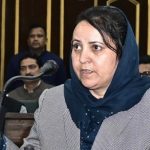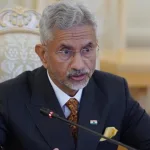India this year took over the presidency of the powerful G20 bloc. G20, a post World War II initiative to ensure financial stability and coordination among different countries also works towards a host of other issues having global ramifications. It is also here worthwhile to mention that G20 accounts for around two-thirds of the world population, 75% of the international trade, 80% of Gross World Product (GWP) and 60% of the world’s land area; G20 is presently one of the largest and biggest intergovernmental forum comprising of 19 countries and the European Union (EU). G20 composed of most of the world’s largest economies, including both developed and developing nations works to address major issues related to the global economy like international financial stability, climate change mitigation and sustainable development. The group was formed in 1999 in response to the severe economic crisis that shocked the economies all across the globe. Since 2008, the group has been meeting at least once a year. The annual summit witnesses the participation of heads of government of member countries or their finance minister or foreign minister and other high-ranking officials. Now, India being at the helm of the bloc has got a unique opportunity to contribute to the global agenda on pressing issues of international importance.
Hon’ble Prime Minister Sh. Narendra Modi had rightly said that for India the G-20 in 2023 will not only be about diplomatic meetings, but it will provide us with the opportunity to showcase our developmental strides aimed at furthering global good particularly in the agricultural sector towards ensuring food and nutritional security for all. India has also invited Bangladesh, Egypt, Mauritius, Netherlands, Nigeria, Oman, Singapore, Spain and the UAE as guest countries for the summit in 2023. Recently, the Agriculture Deputies of the G20 met for three days and agreed on a broad four-point agenda as they identified the global challenges in the agriculture sector that need immediate attention. The four point common agenda focuses on issues of Food Security and Nutrition, Sustainable agriculture and Climate Change’s Impact, Inclusive Agricultural Value Chain and Digitalization for Agricultural Transformation.
Food Security and Nutrition
The challenges like food and nutritional security are still present. While a lot of progress has been made on food security, nutritional security is something we need to worry about. While one of the Sustainable Development Goals also focuses on Achieving Zero Hunger by 2030, countries need to work on it cohesively. Union Agriculture Secretary Manoj Ahuja also told media persons on the sidelines of the three days meet that their discussions centered on achieving one of the Sustainable Development Goals (SDG) of zero hunger. It has been seen that food insecurity has increased after 2018. The nutritional insecurity is manifested through the prevalence of stunting and wasting in children, increased Infant Mortality Rate (IMR) and Maternal Mortality Rate (MMR), anemic mothers and adolescent girls. Indian government is already working on this aspect. A host of various initiatives have been started to address the issue of nutritional security. POSHAN is now the largest nutritional security programme in the country. At the behest of India, the year 2023 is being celebrated as International Year of Millets all across the globe. Millets are nutri-cereals contain about 7-12% protein, 2-5% fat, 65-75% carbohydrates and 15-20% dietary fibre. The essential amino acid profile of the millet protein is better than various cereals such as maize. Millets contain fewer cross-linked prolamins, which may be an additional factor contributing to higher digestibility of the millet proteins. Small millets are good source of phosphorous and iron. Millets also contribute to anti-oxidant activity with phytates, polyphenols, tannins, anthocyanins, phytosterols and pinacosanols and high antioxidant activities. These are good for consumers, for cultivators and also for climate.
Sustainable Agriculture and Impact of Climate Change
Climate change is a reality and a universal phenomenon not confined to a specific part of the globe. Almost all the regions are now witnessing the adverse impacts of the rising temperatures. The impact is in the form of decreasing yields, increased frequency of droughts and floods, loss of biodiversity, changing pattern of precipitation and much more. Agriculture is one such sector which contributes to climate change as well as provides various mitigation as well as adaptation strategies for minimizing the impact of climate change. India has already taken steps to make agriculture climate resilient as well as to ensure sustainability. In this regard, India also shared the steps taken towards ‘climate-smart agriculture’ like mapping the vulnerable areas and conducting research, increase climate finance to help farmers take up adaptation measures in order to mitigate the climate change impact.
Inclusive Agriculture Value Chain
A value chain is a set of linked activities that work to add value to a product. It consists of actors and actions that improve a product while linking a commodity producer to processors and markets. Although there has been no universally accepted defination of the term, it normally refers to the whole range of goods and services necessary for an agriculture product to move from the farm to the final customer or consumer. The term value chain was first popularized in a book published in 1985 by Michael Porter who used it to illustrate how companies could achieve what he called competitive advantage by adding value within their organization. At the heart of agriculture value chain is the idea of actors connected along a chain producing and delivering goods to consumers through a sequence of activities. However this vertical chain cannot work in isolation and an important aspect of value chain approach is that it also considers horizontal impacts on the chain such as input and finance provision.
Development of Agri Value Chains is another area which needs attention as any disruption in the agriculture value chain can have an impact on the small farmers’ income. In this regard, countries are already shifting their focus from a production-centric approach to a value-chain approach. Presently agri-food systems all over are facing increased population pressure, high level of food loss and waste, increasingly degraded natural resources and vulnerability to climate change, dependency on imports and conflicts of various types. As a result of the COVID-19 pandemic, there has been an increase in food prices. This coupled with the economic slowdown and supply chain disruption as a result of the pandemic has all exacerbated the vulnerability of value chains all over. Agri-food value chain development also faces many challenges like lack of an enabling environment, governance, infrastructure, and policies conducive to sustainability and growth of agriculture value chains. These agriculture value chains have to be made more inclusive, resilient and sustainable. Through a systematic strategy that should include undertaking holistic analyses of value chains to identify root causes of unsustainable practices; prioritization of leverage points and addressing critical constraints; development of integrated interventions and solutions through collaboration across disciplines and sectors, and within and between countries, inclusive agricultural value chains should be developed and strengthened.
Digitalization for Agricultural Transformation
Digitalization has emerged as the most potent tool in the present times particularly after the COVID pandemic addressing the major issues in the Indian agriculture relating to timely availability of relevant information. Various ICT tools are now supplementing human efforts and make up for the shortage of human resources. A notable digital intervention in the agriculture sector where the country is working is ‘Agri-Stacking’. Being described as a digital revolution, an ‘Agri-Stack’ refers to a collection of technology based interventions in agriculture on which everything else will be built. Agri-Stack may have a Farmers’ Stack. A Farm Stack and a Crop Stack integrated on a technology platform linking existing digital land records, cadastral maps of farm and information. Farm stack would have geospatial information on each farm, owned by a farmer and Crop Stack can contain crop data linked to farms. The government will provide ‘required data sets’ of farmers’ personal information to Microsoft to develop a farmer interface Unified Farmers Service Platform (UFSP) for ‘smart and well-organized agriculture’.
According to Union Minister for Agriculture and Farmers Welfare, GoI, Sh. Narendra Singh Tomar, the database is envisaged to facilitate online single sign on facilities for universal access and usher in personalized services to farmers such as direct benefit transfer, soil and plant health advisories, weather advisories, irrigation facilities, and seamless credit and insurance facilities. It will also provide information pertaining to seeds, fertilizers and pesticides, nearby logistic facilities, market access information and peer to peer lending of farm equipment, among others. There is also a provision of unique farmer ID (FID) to uniquely identify a farmer and to know benefits availed by a farmer under various schemes.
This Centralized Farmers Database shall be useful for various activities like issuing soil health cards, dissemination of crop advisories to the farmers, precision farming, smart cards for farmers to facilitate e-governance, crop insurance, settlement of compensation- claims, grant of agricultural subsidies, community/village resource centres etc. The data of 4.3 crore farmers linked with land records have already been verified and the database would be unveiled shortly. It would enable use of artificial intelligence on large data sets which will help in managing farms more effectively. Applications built over the stack will provide farmers with recommendations on which seeds to buy, and best practices to maximise their yield, along with updates on weather, agricultural credit, insurance and all other schemes. This will also help increase farmers’ income and improve the efficiency of the agricultural sector. The NITI Aayog states that diverse problems such as inadequate access to credit and information, pest infestation, crop wastage, poor price discovery, and yield forecasting can be sufficiently addressed by use of digital technology.
(Author is a Faculty, SKUAST-K and can be reached at [email protected])





